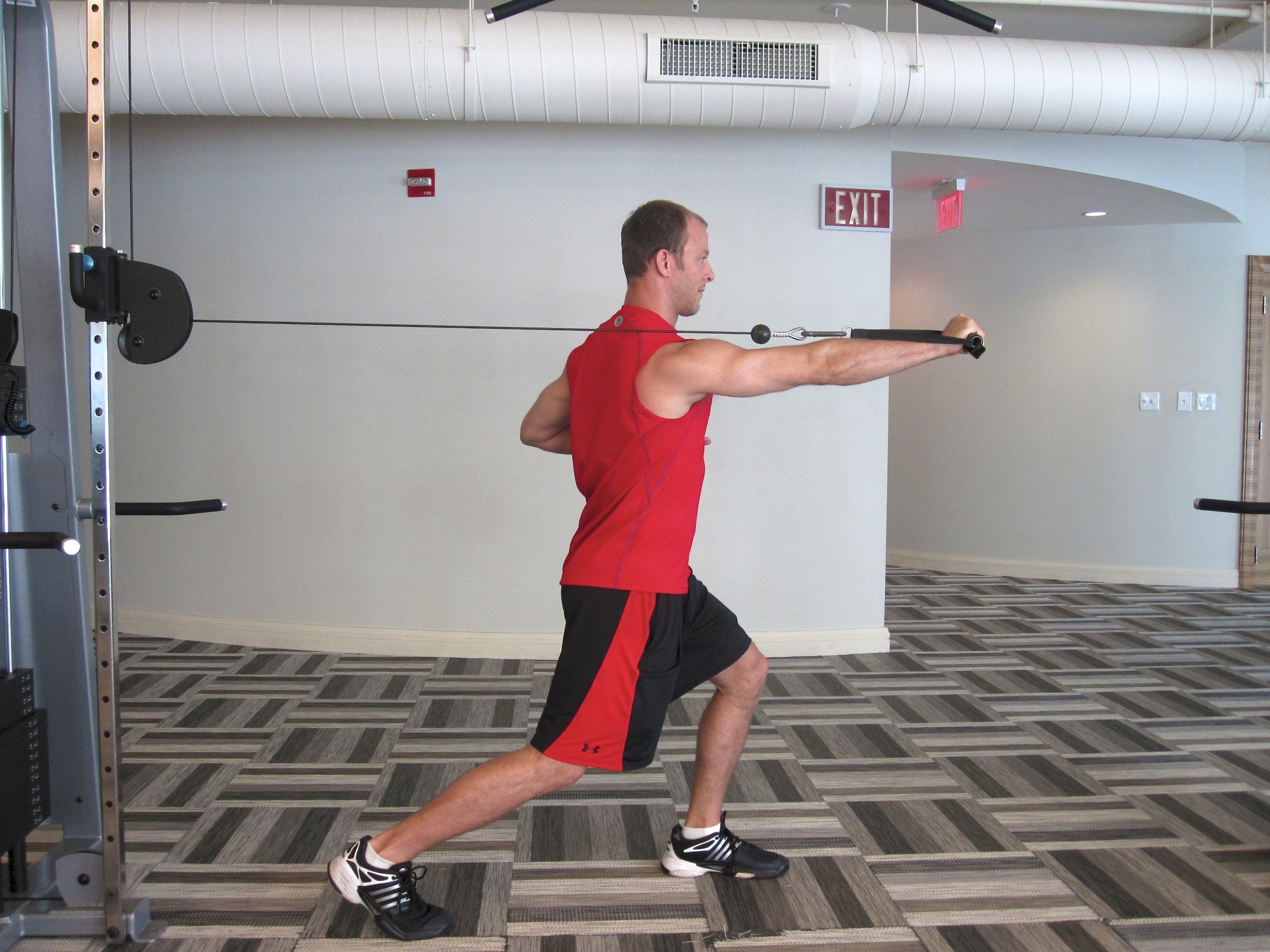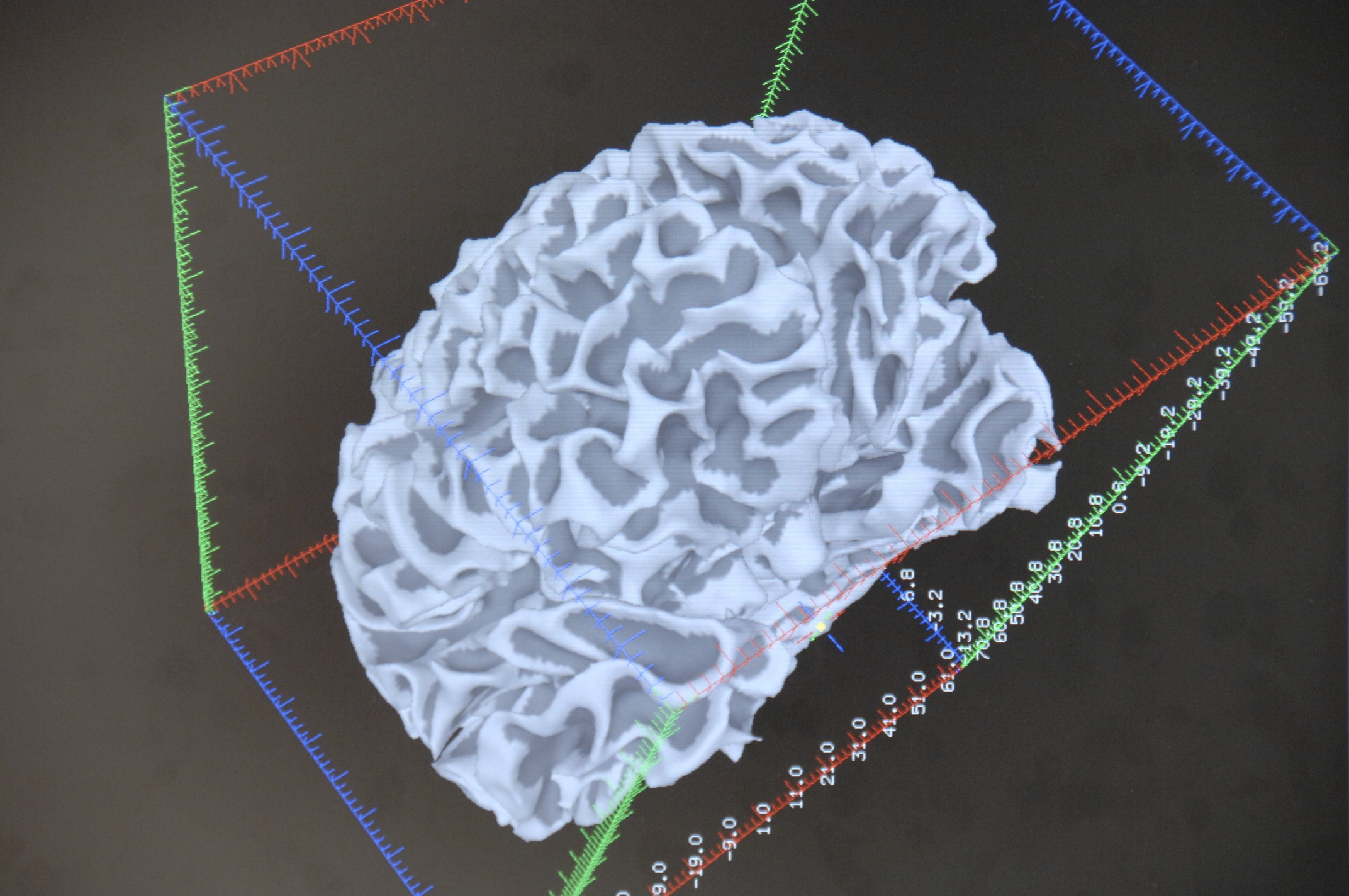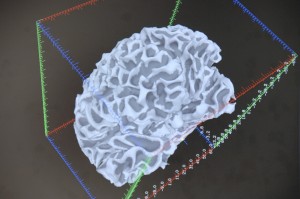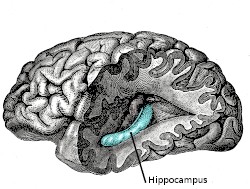Everyone has heard about the benefits of exercise for your heart health and to maintain a healthy body weight, but current research is showing exercise has a profound impact on the most important organ of all: your brain.
The Human Brain
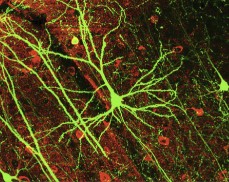
The green and red staining indicates two different types of neurons in mouse brain. Source PLoS Biology
Your brain is composed of billions of “brain cells” otherwise known as neurons. Most cells of your body get replaced after a certain amount of time, but neurons, unlike other cells in your body, do not undergo cell division; or so we thought. New research is suggesting otherwise and it is linked to exercise.
A recent study demonstrated that physical exercise can affect the size of a particular part of your brain known as the hippocampus.
The “Seahorse” in Your Brain
The hippocampus belongs to the part of your brain known as the limbic system. The limbic system is believed to be involved in emotion, behavior, and long-term memory. The hippocampus is the part of the limbic system that is essential to forming long-term memories as well as spatial memories.
In the well-known case of Henry Gustav Molaison, a surgical patient who had his hippocampus removed to treat his severe epilepsy, his ability to form long-term memories was non-existant.
Spatial memories refer to the ability to navigate through your environment; for example to find your way to the grocery store from your house.
Studies have found that your hippocampus shrinks with age, a process that is correlated with cognitive decline. Although the rate at which cognitive decline occurs is differs depending on the individual, we are finding that there are ways to slow or even reverse some of this process with physical exercise.
Exercise and Your Hippocampus
The good news is that a new study is demonstrating that exercise can increase the size of your hippocampus as well as improve your memory.
Researchers from the University of Illinois and the University of Pittsburg tested the fitness of 165 adults ranging from ages 59-81. They found a very strong correlation between fitness, hippocampus size, and memory.
The researchers stated that the more fit the individual, the bigger their hippocampus. And the bigger a individual’s hippocampus, the better their memory was. The study implies that by staying fit, you can maintain, or even improve, the parts of your brain involved with learning and memory.
My Take On the Research and A Prediction
Although this is one study and the researchers used cardiorespiratory fitness to measure fitness levels, I am going to make a prediction: I believe that as new research in the area of exercise and cognition comes out, we will see that all forms of exercise don’t improve your brain equally.
I am going to predict that exercises that require more concentration and balance will be superior for improving cognition. For example, exercises like single leg squats on a balance pad or sports like tennis will be far better for your brain than machine exercises in the gym or sports like distance running where balance isn’t an issue or the movements are very repetitive.
Although I believe that some types of exercises are more beneficial than others, don’t lose the message of this exciting new research. Now we know that being a “meathead” in our spare time might be one of the smartest things we can do.


